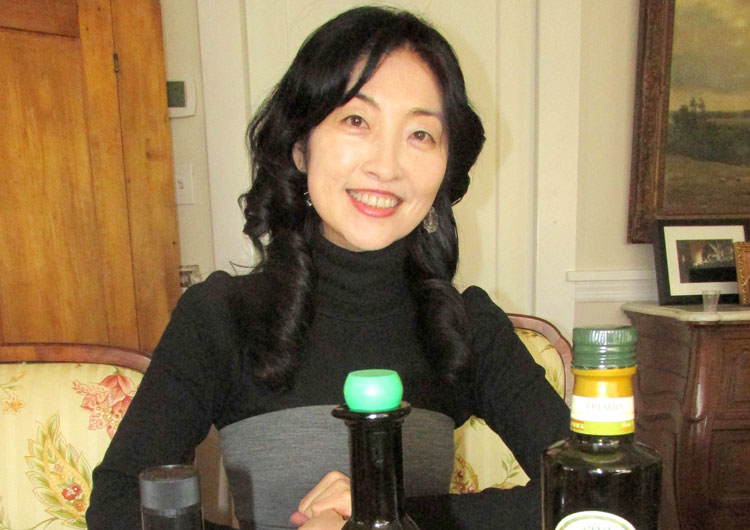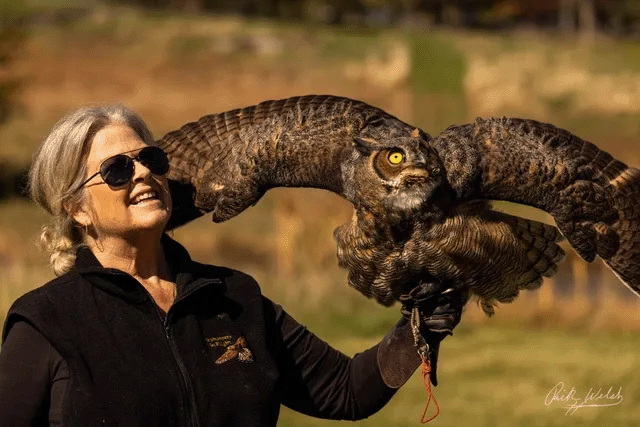
By Anne W. Semmes
Sentinel Correspondent

The integrity of extra-virgin olive oil—the cook’s delight—is on trial these days. The news from Italy is there’s rampant adulteration of this prized product by forces wanting to cash in on last year’s dismal harvest in Italy by mixing Italian extra-virgin with lower quality olive oils from North Africa and around the Mediterranean. The result is that main-line label bottle you’re used to buying may not contain the real thing.
Enter practicing counselor Grace Song from Old Greenwich, who has been priming herself to be an ambassador of EVOO from Italy. “Nearly 70-80 percent of extra virgin olive oil sold in the supermarkets is not authentic,” says Song. “The consumer needs to let their supermarket know if it is not EVOO.”
A certified olive oil sommelier, Song is ready to educate olive oil buyers as to what is the real EVOO. “I’m working to have a local EVOO workshop in early April,” she says.
Song is smitten by the heritage, the symbolism, and the health benefits of EVOO. She cites the endorsement of Thomas Jefferson: “The olive tree is surely the richest gift of heaven,” and that of Homer, who called olive oil “liquid gold.” And then there were all those kings in the Bible being anointed with oil.
Song comes by her new embrace of olive oil through her support of the Amoris Foundation to help underprivileged children, founded by her sister Sue Song, a concert pianist, and her husband, Wendell Minnick, who live in Old Greenwich. Looking for ways to raise money for that effort, sister Grace thought of selling EVOO back home.
She did her due diligence—surely a pleasure—of visiting producers of artisanal extra virgin olive oil in four regions of Italy: Tuscany, Marche, Puglia, and Sicily. She came away wanting to represent those “honest and hardworking” harvesters. “These farmers are very special people committed to family values,” she says.
Hence the name Amaris—a play on Amoris—was created for her business and website: amarisoliveoil.com. “Amaris means you are loved, you are valued,” Song says. Beneath her Amaris banner, Song’s goals include promoting and supporting those olive oil farmers, making “genuine and quality” EVOO more accessible to consumers, developing appreciation and knowledge of olive oil—and supporting charitable causes that help needy children.
To that end, Song is organizing “Olive Oil & Wine Tours” in Tuscany and Marche in September, and in Malta in October, with olive oil and wine tasting workshops.
“Olive oil can be compared to wine,” she says. “Olive oil and wine juice are both delicate. Wine gets better with age but olive oil is best consumed in its first year. The oil is so delicate it can be compromised.”
Song is also partnering with a British slow food supporter who organizes slow food festivals in England, Italy and Marche, she says. “People can attend these festivals or go on a personalized tour.”
Song is passionate not only about developing olive oil appreciation, but also about educating people about a healthier food culture. She cites olive oil’s anti-oxidant and anti-inflammatory properties. “They promote a healthier cardiovascular system and digestive tract,” she says, “and they lower the risk of breast and colon cancer and neurodegenerative diseases.”
For medicinal purposes, she recommends taking two tablespoons of EVOO a day.
Next week, Song is off to Palma, Italy, to serve on a jury to help preselect oil submitted in the Armonia International Olive Oil Competition. “I do a lot of tasting of good and bad oil,” she says. But she’ll be back in time for that local olive oil workshop being offered in early April.
As a preview, Song presents this reporter with a couple of EVOO samples to smell and taste. One tastes flat, while the other has a peppery sensation in the mouth and throat: it’s the real thing. It passes the smell test as well with the scent of green tomatoes. But also authentic is the subtle smell of artichokes, or herbs, or grass.
“What’s going on now is a fight for food authenticity and reliability,” she says. “We need to be able to trace our food from the table to where it comes from.”
Song was cheered to read the latest news of a proposed stiffening of a legislative decree in Italy that would regulate penalties for counterfeiting olive oil and its origins. But for Song the bottom line is, “People need to know what EVOO is supposed to taste like!”




